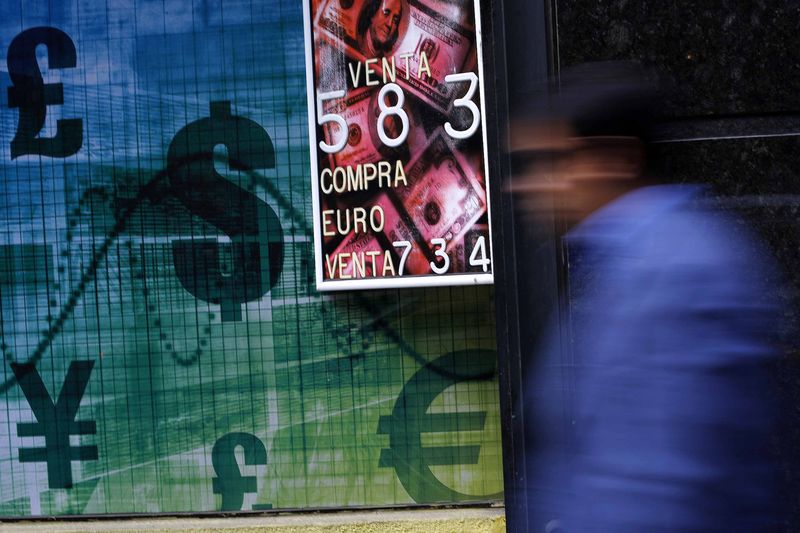* Safe haven yen slips as risk appetite recovers
* Fears of global trade war recede
* Euro firmer vs yen after surging 1.4 pct on Monday
By Masayuki Kitano
SINGAPORE, March 27 (Reuters) - The safe haven Japanese yen sagged on Tuesday, as optimism that the United States and China could begin negotiations on trade helped ease concerns about a trade war, bolstering demand for riskier assets.
Global markets were shaken last week after U.S. President Donald Trump moved to impose tariffs on Chinese goods, sparking fears of a trade war between the world's two largest economies, but latest reports indicated a slightly more calibrated approach.
Chinese Premier Li Keqiang said on Monday it and the United States should maintain negotiations, reiterating pledges to ease access for American businesses. receding concerns over U.S.-China trade tensions whetted investor appetite for riskier assets. Wall Street scored its best day in 2-1/2 years and the Dow Jones Industrial Average saw its third-biggest point gain ever on Monday. is this sense in the market that the situation might not escalate into a trade war," said Satoshi Okagawa, senior global markets analyst for Sumitomo Mitsui Banking Corporation in Singapore, adding that China's calm reaction had helped soothe such jitters.
The yen, often viewed as a safe haven currency in times of market turbulence and economic uncertainty, partly because of the resilience provided by Japan's current account surplus, retreated due to the revival in investor risk appetite.
With the yen on the defensive, the dollar rose 0.2 percent to 105.59 yen JPY= . The greenback has bounced back after hitting a 16-month low of 104.56 yen on Monday.
The euro rose 0.2 percent against the yen to 131.49 yen EURJPY=R , after surging 1.4 percent on Monday for its biggest one-day percentage gain since June 2017.
Against the dollar, the euro stood at $1.2449 EUR= , up 0.1 percent from late U.S. trade on Monday and hovering near Monday's high of $1.24615, the euro's strongest level since mid-February.
Comments from Jens Weidmann, Germany's likely candidate to become the European Central Bank's next president, helped bolster the euro on Monday.
Weidmann said market expectations of a rate hike towards the middle of next year were "not completely unrealistic", a view shared by the broader market, although some expect a rate hike by the first quarter of 2019. held steady at $1.4231 GBP=D3 , having gained 0.7 percent on Monday as investors became more convinced that the Bank of England would raise interest rates in May. gains in some of its major rivals and the firm tone of emerging market currencies helped weigh on the greenback.
Against a basket of its six major peers, the dollar last stood at 89.091 .DXY , languishing near a five-week low of 88.979 set on Monday.
Emerging market currencies had gained ground on Monday, as growing optimism that the United States and China will soon begin negotiations on trade, eased fears of a global trade war. Mexican peso last traded at 18.3350 MXN=D2 per U.S. dollar after gaining about 1 percent on Monday.
On Monday, the Mexican peso set a six-month high of 18.27, buoyed by hopes that the United States could strike a more constructive tone in negotiations over the North American Free Trade Agreement (NAFTA).
